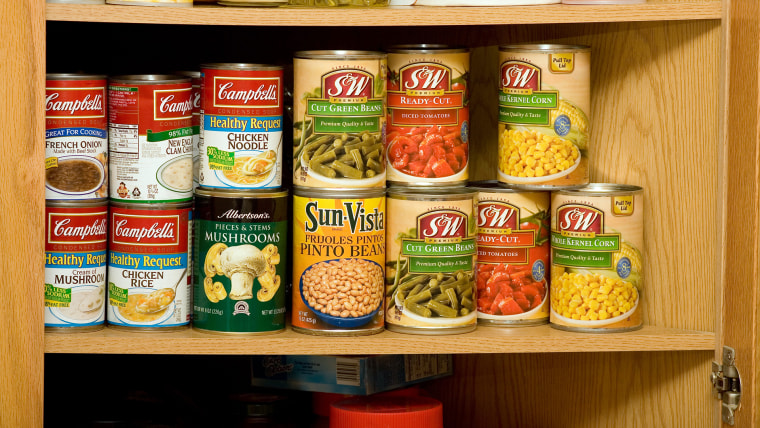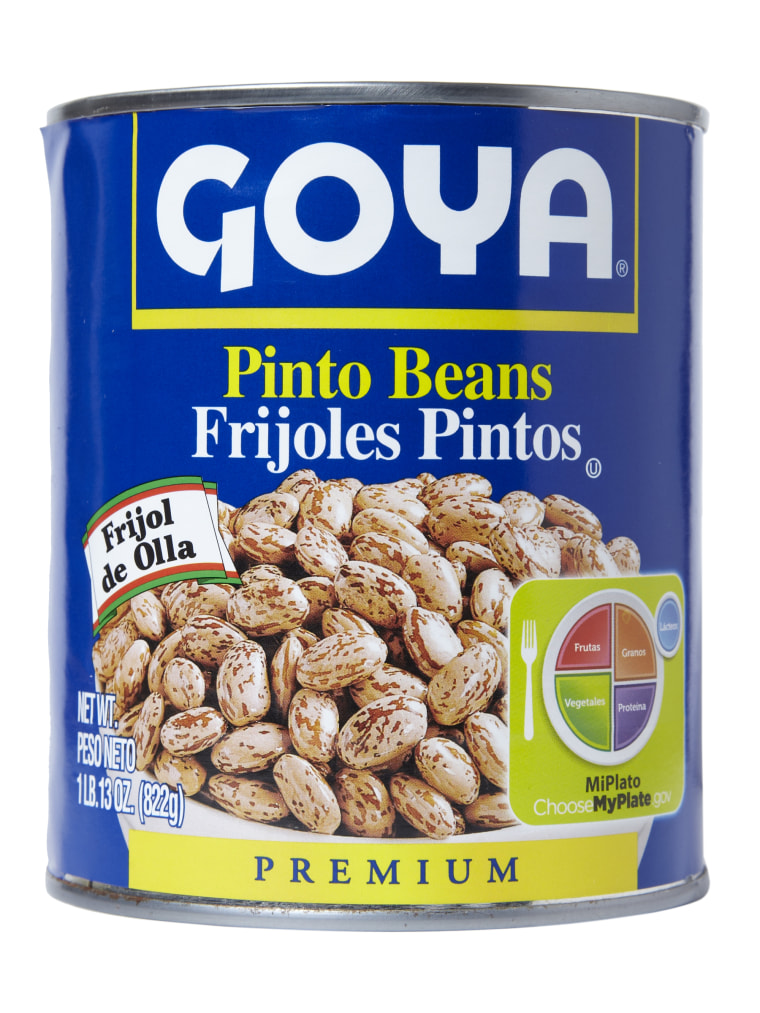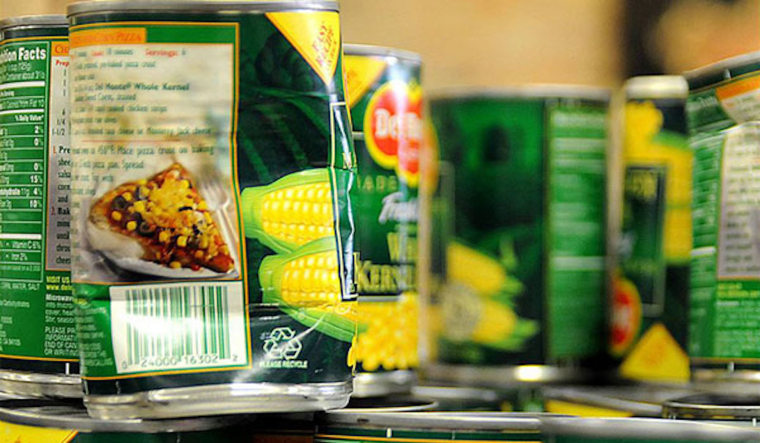Food myths debunked: When do canned foods really expire?
When does canned food really expire? Is it safe to eat canned food after the “best by” date? Here’s what we know.Jan. 9, 2018, 8:57 AM MST / Source: TODAYBy Katie Jackson
During the winter months, chances are pretty good that one night, you may be reaching for that can of soup in your pantry when it’s just too cold to go out — and you’re too tired to prepare a whole meal.
But while you’re opening it, you see the date stamped on the top and recoil. The soup expired two months ago! Or did it? When it comes to canned foods — and a lot of foods in general — it turns out many consumers aren’t always sure what those stamped dates actually mean.

Sell by dates and best by dates are not actually mandated by the Food and Drug Administration (FDA). Unless it’s for infant formula, the dates on packages are voluntarily provided by the manufacturers. Stores can even sell products that are weeks or months “past” their dates.
So, what do the numbers on the cans really mean? TODAY Food reached out to the Canned Food Alliance, whose spokesperson pointed us to their basic guide referencing expiration dates. According to their guidelines, canned food (when kept at relatively stable temperatures) will remain at peak quality for at least two years after it’s been processed. They note that while food in cans “retains its safety and nutritional value well beyond two years,” its color and texture may change after that time. Many factors affect how long a food will stay edible in the can, but food kept at “moderate temperatures [75 degrees or below]” may last indefinitely.
Does that mean you should be eating food out of a can found on the Titanic? Probably not.
Ron Giles, Quality Assurance Director of Goya Foods, Inc. says the canned food industry prefers to use “best by” dates as opposed to expiration dates.
“Canned foods do not expire on a certain date,” explains Giles. “One cannot say that the canned food is good on one day and not good the next day. Canned foods are under a vacuum. The absence of oxygen helps to extend the shelf life of canned foods.”

A “best by” date, on the other hand, indicates when a consumer may notice a decrease in quality. For example, the food’s color, texture or flavor may not be optimal. NBC nutrition consultant and registered dietician Bonnie Taub-Dix, author of “Read It Before You Eat It,” said that there may also be a decrease in nutritional value.
But even then, it takes years for that to happen. Goya canned beans, for example, have a best by date of three to five years from the day of production. Goya — which is one of the world’s largest food processing companies — determines a product’s shelf life by taking into account several factors. In addition to looking at industry standards and doing internal evaluations, the company uses insight from packaging material suppliers.
So which older canned food is safer to eat? In general, foods that are more acidic will actually expire sooner. Foods with a more basic pH level will last longer than most canned vegetables and fruits. This means good old Spam may actually outlive those canned peaches.
But storage quality is really the biggest determinant of canned food safety.
“When I think ‘zombie apocalypse bunker’ I think canned food!” says Emily Peterson, Chef Instructor at the Institute of Culinary Education. “Can something meant to feed us ‘forever’ in case of emergency ever really expire?” Peterson doesn’t tell her culinary students to focus on the dates on cans.
“I’m more concerned about the state of the can itself. Is it swollen? That’s a definite no-go. Is it dented or rusted? Throw it away.”

The problem with cans that are in less-than-perfect condition (think dents, dings and swollen areas) is that the hermetic seal and protective lining inside can be broken. Cans are coated with an interior lining that prevents the can’s metal from coming in direct contact with its contents. If the outside of the can is dented, there’s a good chance the interior lining is compromised as well.
Usually, this results in the can rusting or swelling up as the food reacts with the steel, tin or aluminum in the can. Bacteria can also grow and release gases that make the can bulge. (Botulism is a concern for goods improperly canned at home, but it’s not a concern for commercially canned food.)
Can FOODsniffer really ‘smell’ whether meat is safe to eat?
If the can looks fine but you’re still uncomfortable with it being past the best by date, donate it to a food pantry. Many food pantries accept, or will properly dispose of, expired goods. To avoid getting into a tricky situation in the first place, implement the first in, first out rule. “When storing your canned goods, newer items should go towards the back while older items should be towards the front of cabinets or pantries for easier access,” says Mandy Enright, a registered dietician based in New Jersey.
If the can looks fine and you want to go for it, no problem. Just get a good whiff first. If something doesn’t smell right and it doesn’t look right, don’t eat it or serve it.
https://www.today.com/food/when-do-canned-foods-really-expire-t119977